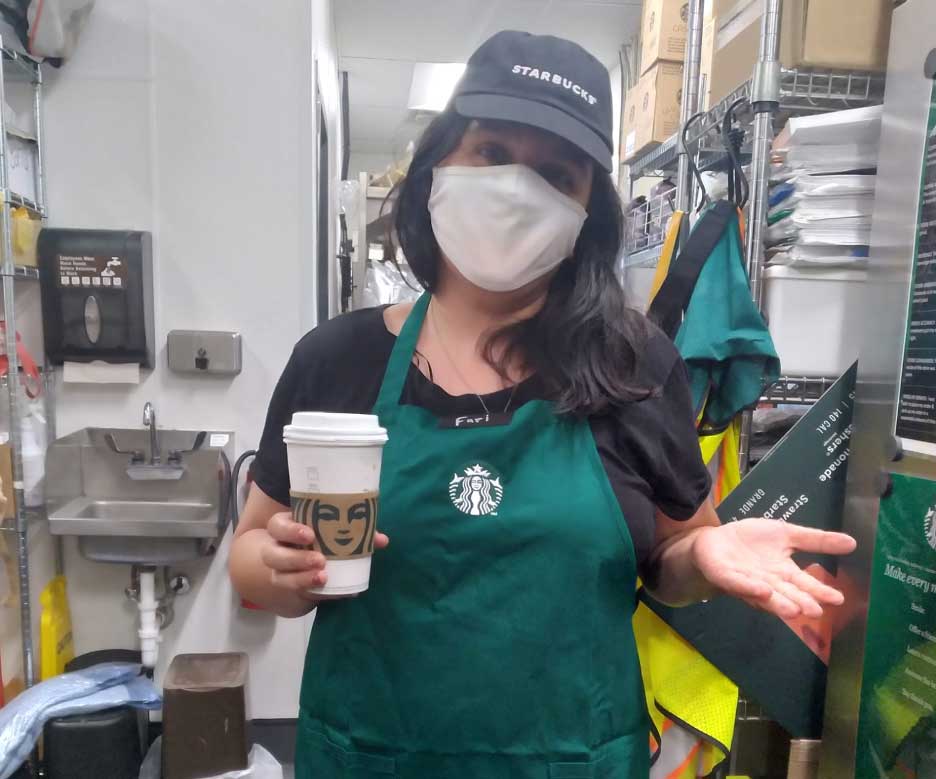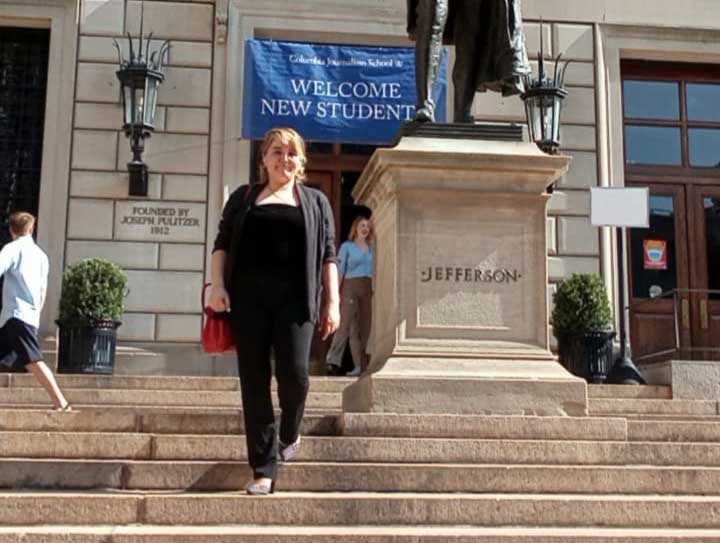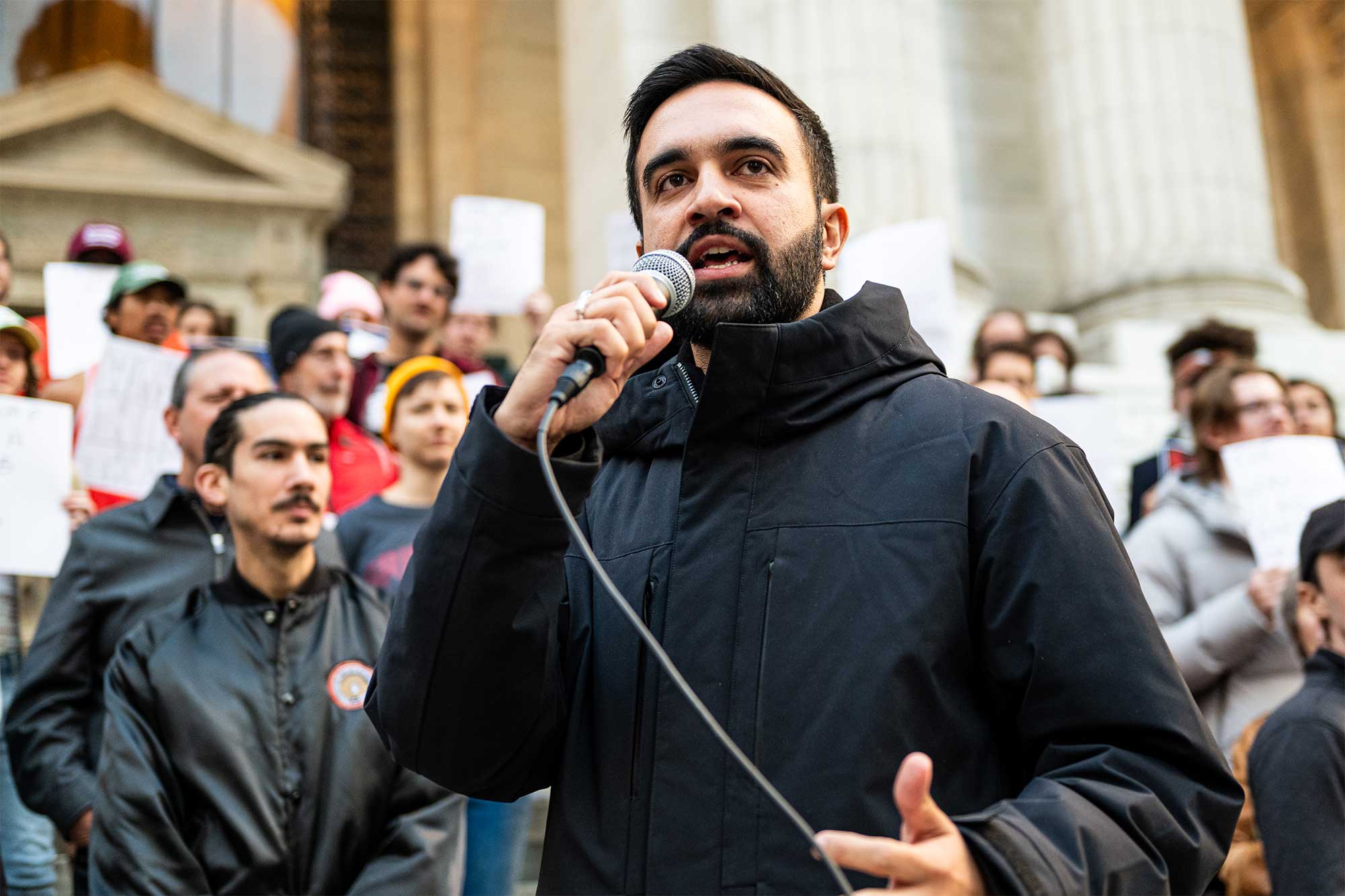Everyone I meet keeps saying this summer in New York is unexpectedly hot.
I think the extra heat isn’t just the weather; it’s how the political debates weigh heavily on the Big Apple. Sometimes Central Park is the gathering place; other times, it’s the street corners where people hand out flyers and candidate information. I don’t take any of it, keeping my distance from the noise. Yet somehow, I can’t shake the feeling that Zohran Mamdani will win. Or maybe I’m just secretly hoping for it. As an Afghan American, I stand weathered and wary at the crossroads of the Americas that Zohran represents, worlds shaped by both turbulence and transformation.
Growing up in Afghanistan basically meant running from one war to the next, and home did not mean a place of peace and comfort. A brief relief came, or so I thought, when I found myself studying and working in Prague in the early 2000s, a place still living in the afterglow of its post-communist identity but, like me, struggling to find its new self in the shadow of its newly found liberty. It was less a move than an escape.
Quickly, I learned the Czech language. I read Kafka. I made friends, which fascinated many Czechs since foreigners, especially from my part of the world known for poverty, wars, and devastation, were not people you met every day, so I was warmly embraced but like a cherished guest, never quite family; that elusive sense of belonging always felt just beyond reach. I was not Czech, and I knew I could never become one. That realization made me feel incomplete, small, and hollow amid so much grandeur.
So, around autumn of 2020, I came home to the United States of America. I didn’t expect ease or comfort, but I wanted to stop hovering at the edges. I wanted to merge, to disappear into the ordinary, to belong, not as a visitor but as a participant.
After years of working in one of America’s most intricate and globally connected newsrooms, Radio Free Europe in Prague, and spending my days walking through hallways where Russian journalists from the Soviet era and Iranian icons of resistance journalism worked side by side, and where figures like Václav Havel, the prominent anti-Soviet revolutionary of Eastern Europe, were once among the guests who moved through and shaped the space, I came to understand one thing clearly: my knowledge of America was largely confined to its institutions, the Congress, the State Department, and many Washington-based think tanks I followed for news and analysis as part of my work.
I wanted to begin my American life among everyday Americans, to know them not through policy or power, but through their stories, and where better to start than in an American coffee shop? Almost immediately, I found a job at Starbucks, and before long, I was rewriting my résumé for Laura, a café manager who knew nothing about journalism or America’s overseas missions. She knew only that I needed a chance.
“Why do you want to work here?” she asked, her blue eyes wide as she held my resume in her hand. “I want to learn about the American life,” I replied. “And become a part of it.” She smiled, her grin spreading across her entire face as she welcomed me aboard. She gave me a hug too. That was the America I wanted to hold onto.
On the floor, the baristas didn’t talk to me much.

They didn’t include me in the chatter when headsets were off or during lunch breaks, but they did not entirely exclude me either, and it was okay. They taught me how to make cappuccinos and that Americanos were named after American soldiers in Italy during World War Two. My favorite part was grinding all kinds of African and South American coffee beans and packaging them delicately for coffee enthusiasts, looking forward to the inevitable question, “Where do you come from?”
Every time, I paused with excitement, knowing that my answer carried a story, a history, and a journey far beyond coffee and cappuccinos, and that the person asking probably had an even greater story than mine. As a journalist, there is nothing more intriguing to me than a story; for example, when one woman noticed my henna during Eid.
“I used to wear henna too,” she said softly.
She was among the Jewish Egyptians who were forced to leave everything behind after the 1952 revolution in Egypt and the 1956 Suez Crisis. She told me she was just a young girl at the time, yet she vividly remembered the Egypt of her childhood and how her family, along with much of her community, was compelled to emigrate to Israel, Europe, and the Americas out of fear of persecution and violence.
"I went back once, when I got married," she said, "and never returned, because it was so upsetting to see an Egypt that had changed completely, where my community was almost entirely gone." I did not really want to hear that, as I hope to visit Afghanistan and my birthplace, Kabul, someday, and her story broke my heart; perhaps she felt it too. We hugged before she left, gently bending the Starbucks rules, but it was okay because I was in America, where people valued empathy more than strict workplace rules.
That was the America I came for: the one where strangers see each other and recognize their struggles, where kindness isn’t performative, and where people carry stories like soft lanterns in dark hallways.
Nearly two years later, I was accepted to Columbia Journalism School; I was officially part of New York, living my American dream, on one of the world’s best platforms to tell stories, our stories, to the world.
At Columbia J-School, larger-than-life writers shared their craft with humility, assuring me that my voice mattered and that I had a space to participate in discussions about American democracy, the Constitution, the republic, and the forces that shape the daily lives of its people. What more could I, an immigrant writer, ask for than validation and a space to participate, to feel included and seen?

There, I met Professor Mahmood Mamdani, a renowned voice in South Asian literary and political thought. The first time I stepped into his office, my eyes caught a copy of Rumi on his desk, the beloved 13th-century poet from present-day Afghanistan, and that single glimpse was enough to spark a quiet connection. We spoke about where we came from and the lives we had built in America, tracing how our histories, shaped by exile, empire, and belonging, intertwined in unexpected ways.
These moments reflect the true greatness of America, a place where stories from every corner of the world converge to create something richer, a shared human experience of life and identity, and where belonging isn’t just personal, but it can ripple into communities.
Living these moments of shared humanity at Columbia reassured me that belonging isn’t just personal, but it can ripple into communities, and that realization hit me anew in June, when I learned that Zohran Mamdani was running for mayor of New York.
What struck me was that New Yorkers, both his supporters and his critics, had come to see him as one of their own. The intimacy, the acknowledgment of difference yet shared identity, echoed the very human connections I had witnessed in Professor Mamdani’s office. That level of closeness, that kind of civic intimacy, seemed possible only in America.
In the months following his campaign, I’ve seen him criticized for things as trivial as eating with his hands, which some see as unrefined, and for delivering a message in Arabic instead of Hebrew, even though his wife comes from an immigrant Syrian family and he may have learned the language out of love. He’s faulted for lacking job experience and for coming from privilege while trying to represent struggling New Yorkers.
There are, of course, more serious issues. Debates continue over claims of antisemitism, yet he continues to gain support not only from Bernie Sanders but also from Rabbi Moshe Indig, one of New York’s most respected Orthodox Jewish leaders, while many Jewish New Yorkers attend his rallies and publicly endorse him. Criticism, I think, is precisely what makes America, America. Anyone can be questioned, and yet anyone can still try.
I acknowledge that it would be disingenuous to suggest that Mamdani’s trajectory mirrors my own. He comes from a prominent and well-connected New York family—both through his filmmaker mother and his father, an intellectual long embedded in influential circles. I come from war and have reached my current position largely through my own efforts.
I recognize that no one leaves their home lightly, and for those of us shaped by war, repression, and political collapse, migration and seeking refuge are neither choices born of joy nor ambition but historical impositions. While his story does not replicate mine, it nonetheless intersects with mine in a way that once allowed me to envision belonging and possibility in America.
It is a country where someone can aspire to lead the very heart of the world’s economy and remain fully accountable to the will of the people. If the people do not choose him, he will not win. That, to me, is the America I came for. And if that is taken away, what would remain of America?
The 34-year-old Ugandan-born democratic socialist is an immigrant and the son of immigrants, like so many who came before us in boats, in ships, and on foot and built this beautiful country, the United States of America, for us to protect and to advance.
He was not born here, but he is unapologetically American, and being embraced by a city as complex and unforgiving as New York alone is a reminder that the American Dream exists for everyone, not just those born here. Imperfect as it may be, it will continue to draw people like me and Zohran across oceans and borders.
He might or might not win the elections on November 4, but in exercising his civil liberties boldly and assertively, he has achieved something he might never have imagined in India or Uganda. Our stories might not be perfect, but they are American stories, and they are ours, and they are what make America great.
Author’s Note (2026): This essay was composed prior to Zohran Mamdani’s election as Mayor of New York City and before the emergence of subsequent document disclosures and online controversies. It solely focuses on immigration, an immigrant success narrative.


